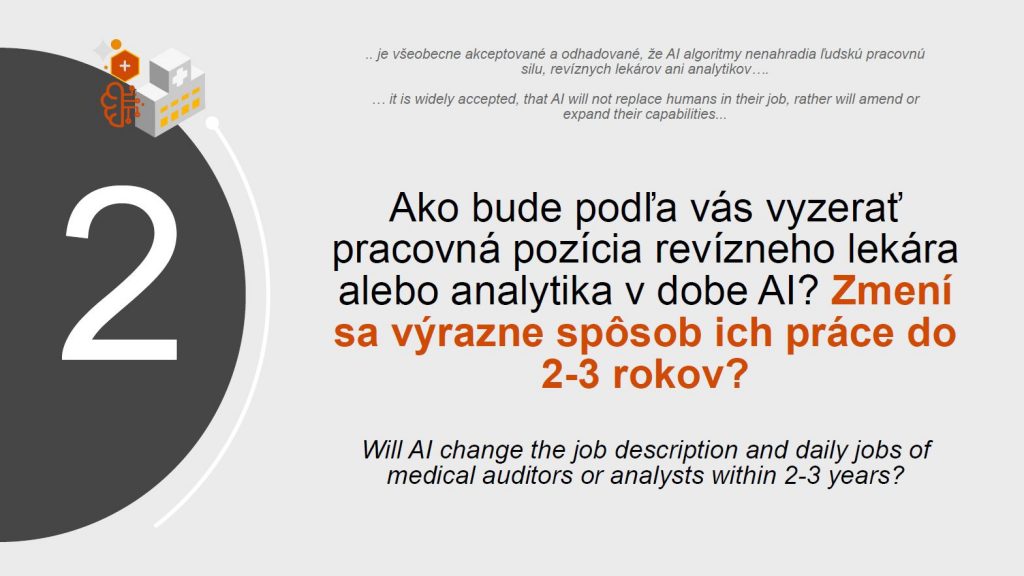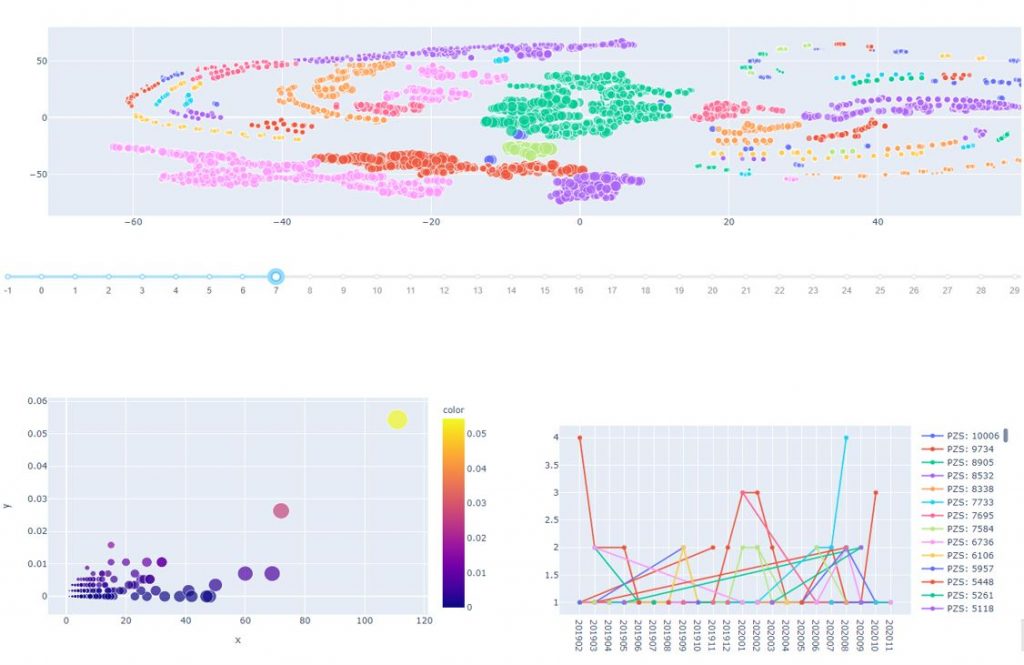What's
How to detect anomalies and fraud in healthcare? We tested the possibilities of intelligent technologies on the hackathon
European healthcare is one of the best in the world. The amount of money used is huge, but we need to use it effectively. For this reason, under the auspices of the European Commission and its Program for the Support of Structural Reforms, PwC, together with KInIT and the Ministry of Health of the Slovak Republic, organized an online hackathon aimed at detecting anomalies and fraud in healthcare using artificial intelligence (AI). The participants were experts in data analysis from the Ministry of Health of the Slovak Republic, health insurance companies and experts in artificial intelligence from PwC, KInIT and two Slovak universities – the University of Žilina and the Technical University of Košice.
In addition to creating a model of doctor or pharmacy behavior, the teams had to deal with the following issues:
- What is healthcare fraud (anomaly)?
- What are the problems related to fraud detection?
- How to deal with new types of fraud?
The hackathon took place from May 6 to May 7 in the form of a friendly competition in which four teams competed. KInIT had representatives in all teams, two teams were led by AI experts from PwC and two AI experts from KInIT. The teams were able to address different types of fraud and design multiple AI-based approaches. As an example, we can mention the suspicious prescribing of a large number of drugs, which has revealed the potential of artificial intelligence, as several independent methods have fully and automatically re-identified the same entities as suspects. Such methods have the potential to streamline the work of busy medical assessors in detecting atypical behavior.
The hackathon also included a panel discussion on the topic of healthcare fraud with representatives of individual insurance companies, the Ministry of Health of the Slovak Republic, the European Healthcare Fraud & Corruption Network and KInIT represented by Mária Bieliková. The role of AI in the field of healthcare and its impact on the work of medical assessors in the period of 2-3 years was one of the interesting topics.

The team, led by Martin Tamajka, was declared the hackathon winner. Artificial intelligence can be trained very well to solve various problems, but we often do not know how the result was discovered.There was also an added value of the winning team, which focused on helping medical assessors. Not only by identifying possible anomalies, but also by interpreting the results. Medical assessors could have a look at the rationale for choosing any anomaly in this solution. This will save them time while searching and allow them to cover more anomalies in the same amount of time. The results from the proposed models will only serve as a recommendation and the final word will depend on a person – an expert.

“Honesty, openness and curiosity in the process of exploration are some of the important values at KInIT, so it was completely natural for us to participate in the organization of the hackathon in order to expose suspicious activities in healthcare. We are very pleased that researchers from several institutions, including ours, have shown a passion for a good cause. Thanks to this, each of the teams came up with interesting ideas that have the potential to contribute to a more efficient and transparent use of already limited resources in healthcare. The hackathon created prototypes of ideas for detecting suspicious behavior, such as an unusually high number of drugs prescribed. ” said Michal Kompan, scientific director of KInIT.
In addition to interesting ideas on the use of artificial intelligence in detecting fraudulent behavior, Hackathon has connected communities of domain experts with researchers in the field of artificial intelligence and data analytics.


